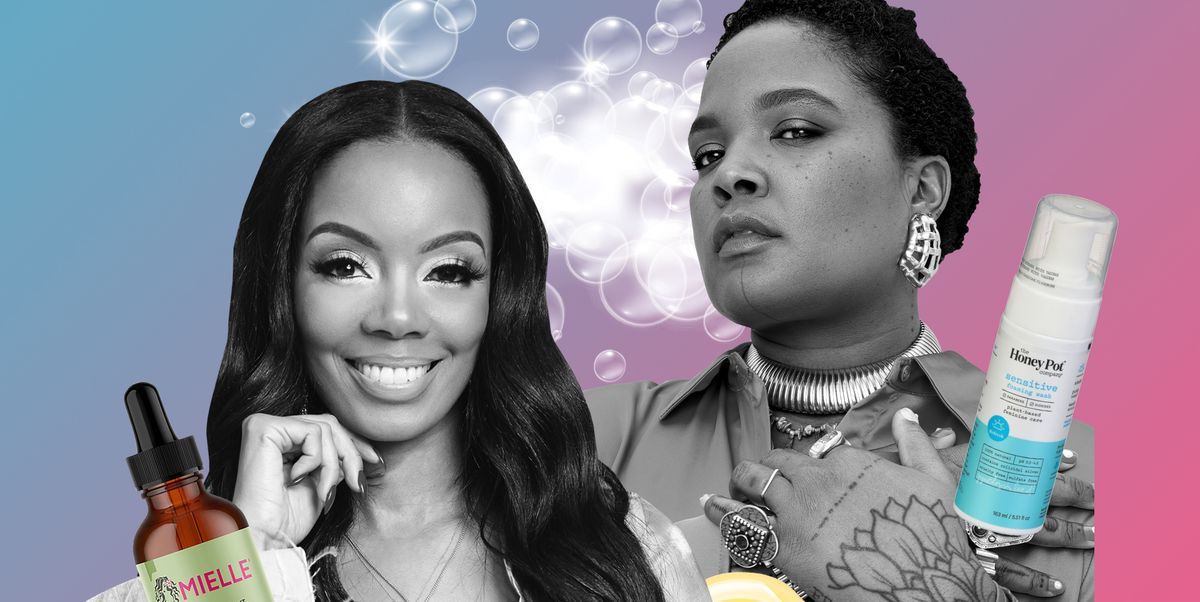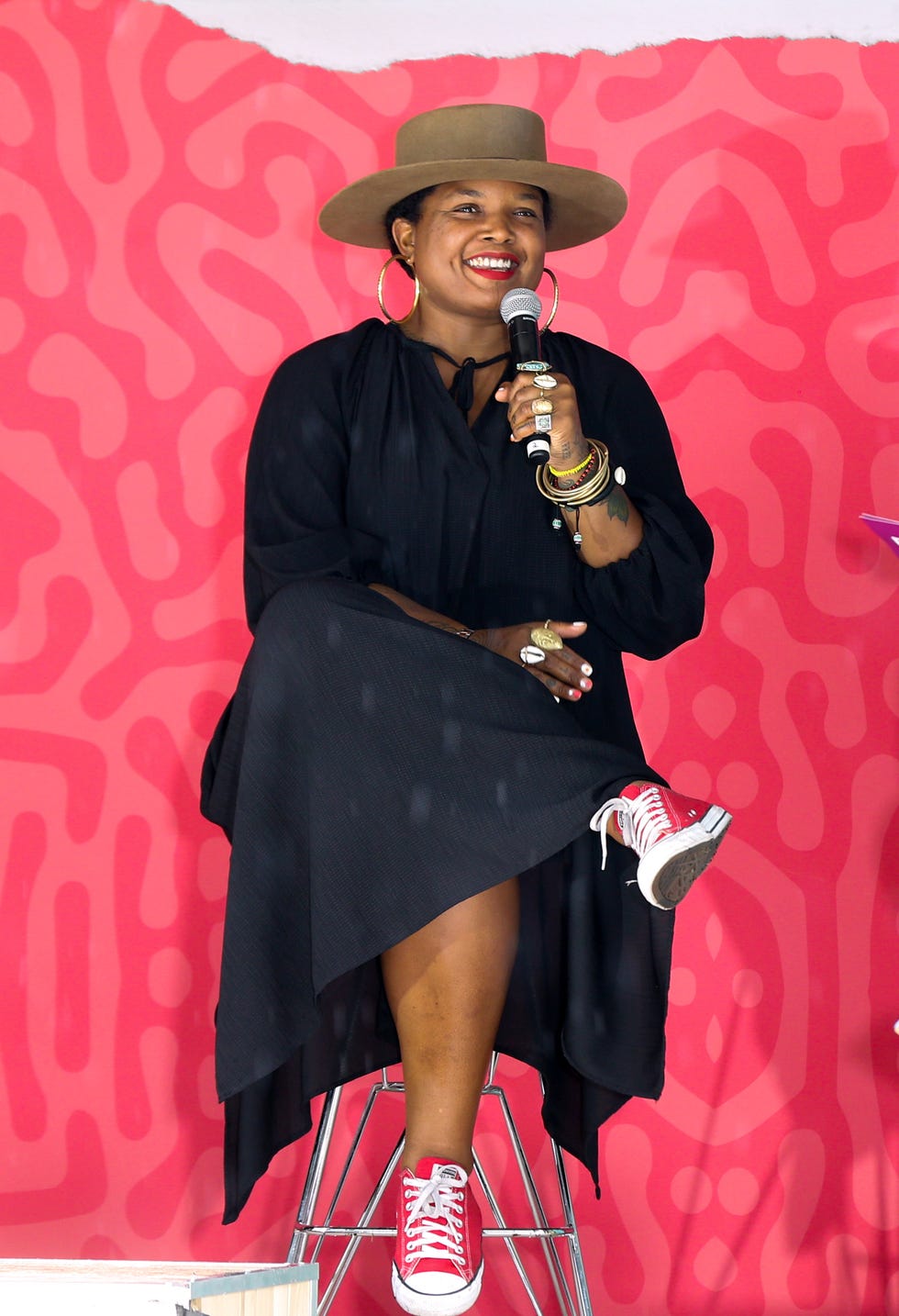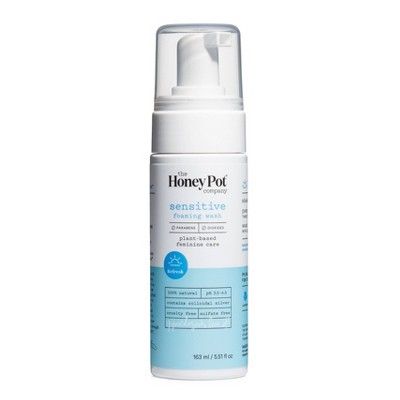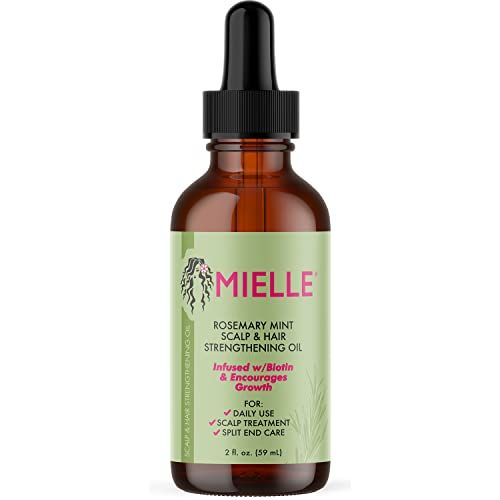To be a Black beauty founder is to be met with grief far more swiftly than you’re extended any grace, regardless of your impact in the industry. By social media’s standards, a brand is simply one business move away from being dubbed a “sellout,” be it for upgrading ingredients in a bestselling vaginal wash or scaling your business to the point where Proctor and Gamble acquire you.
Say “vagina” three times and a Honey Pot product will likely appear immediately. Women take their vaginas seriously, which is why The Honey Pot has become one of the first names folks mention when vaginal health is the topic of conversation, from the brand’s “spicy” period pads infused with herbal ingredients to the bestselling vaginal washes. Founded in 2014 by Bea Dixon, who began whipping up concoctions in her home to combat her history with chronic bacterial vaginosis, Honey Pot’s mission was to build a collection of products supporting feminine hygiene and sexual wellness for “humans with vaginas.”
In May 2022, Dixon logged onto her socials to find her and her company’s name in the throes of online vitriol. A few Twitter users noticed a change in the Honey Pot foaming feminine wash formulation that added preservatives Phenoexythanol and Propylene Glycol to the mix, which concerned many as Honey Pot’s plant-driven ethos is what drew customers to the brand in the first place. Other rumors began to swirl that The Honey Pot would be acquired, which heightened the concern across the community. The vitriol wasn’t surprising, though, as the vagina is already a sensitive area, and entrusting a brand to care for the said area comes with a hefty responsibility.
The threat of losing the trust of the community that catapulted your brand success comes with potential financial and emotional strain, and a 14-minute video posted to Instagram acts as a lesson in accountability. In response to the online criticism, Dixon shared a lengthy video in which she explained that Honey Pot is still owned by her “brother, myself, and the team” and that she “updated the wash formula for good reason” while admitting the team “could have shared more communication about the updates.”
“Our customers don’t need to understand business; we need to understand business and they need to understand that our business, first and foremost, is them,” Dixon tells me over Zoom. “I understand that we’re held to a different standard because Black brands having major, long-lasting success doesn’t happen every day. If we’re in a loving relationship together, we’re gonna have to go through things and get through it, and guess what? We did.”
Black women feel the effects of changes in beauty and health, especially regarding our beauty formulas and routines. But not all stories end the same way, at least, they don’t have to. At the start of 2023, Mielle Organics’ CEO Monique Rodriguez was in the hot seat, too.
After the Mielle Organics rose to TikTok virality in the latter half of 2022—and became even more coveted after TikTok darling Alix Earle mentioned the product as one of her favorites for hair growth—Mielle Organics’ community was already in a state of panic and aggravation. TikTok’s ability to cause a product to sell out is unmatched, which is a win for Mielle Organics but a major pain point for consumers who simply want access to oil specifically made for them without having to share their secret sauce to luscious, healthy hair. So you can imagine the collective frustration felt worldwide when news broke on January 11 that the popular haircare brand was entering a partnership with Proctor & Gamble.
Once again, social media went into a frenzy, as customers began questioning what this meant for the integrity of the products and the brand. But after calling for inclusion and visibility in beauty for so many years, Rodriguez’s big move should be celebrated, not ridiculed. While the Black community has been burned by legacy beauty brands appealing to a different audience than its initial core target group once they get acquired (Shea Moisture came under fire in 2017 for releasing a campaign video that focused primarily on two white women), Rodriguez maintains that this is not how her story will go. At the end of the day, isn’t longevity the goal for a Black brand? Rodriguez says yes.
“We like to look at it as a partnership because that’s exactly what it is. I’m remaining on as CEO, and my husband still operates the company as COO. We are still staying on; we are still driving the company. We’re not going anywhere. We’re still pushing and driving the company forward,” she tells ELLE.com.
The former registered nurse-turn-haircare entrepreneur admits she was a bit rocked by the response. However, her faith in her brand, in God, and the opportunities this partnership opens for Mielle’s future superseded any anxiety.
“What the partnership means for us is that now we have the ability to do more; you can build a brand to a level of being mediocre, or you can build your brand to be at a level of exponential growth at a global scale. But to get to that global scale, you have to have help. You have to have resources. And one of the disadvantages of being a Black-owned business owner is that our community lacks access,” Rodriguez explains.
It’s not unusual for a brand’s ultimate goal to be to sell or be backed by a financial machine capable of helping it weather any storm. But a brand’s legacy is not merely built on financial success. It is also about creating a lasting impact that spans generations, leaving a mark on the world that goes beyond mere profit, a central mission for both Dixon and Rodriguez. Below, the two entrepreneurs share what success looks like to them.
What were the missions of your companies in the beginning and how have they evolved since then?
Bea Dixon: In the beginning, I wanted to create a brand that was generational. I did what my mother told me to do when it came to vaginal health. My mother had to figure it out growing up because her mother died before [she] got her menstrual cycle. All of us, in some way, used what our mothers told us to use and I wanted Honey Pot to be a generational brand.
If we’re gonna make products for such a sensitive area, we have to make people understand how they need to use them. If we’re gonna make products, we should understand the clinical data behind them. We should understand how people will feel. We should understand our ingredients. It’s still about being a generational brand, from teenager to adult to when you have a baby to when you go through menopause and post-menopause. It’s meant to still be the brand that follows you throughout the whole generation of your vagina because, in those different life stages, things change.
Monique Rodriguez: From the beginning, the mission for Mielle Organics has always been to empower, excite, and educate women about healthy hair. The mission remains the same because we continue to stay true to our foundation. As a brand, it’s very important that as you’re growing and building a brand, you never lose sight of your North Star.
What I would say about the evolution of Mielle Organics is that we’re not only talking to women, but we’re talking to men and women because we realize that men also have hair challenges; men are growing their hair out and they’re concerned about self-care and their image as well. So we have evolved from just speaking to women to being a family household brand that [caters] to the whole family.
Speaking of, maintaining relationships with consumers is key to a brand’s success. How have both Honey Pot and Mielle Organics been able to build and maintain that trust, even with shakeups?
MR: As the face of the brand and the CEO of the brand, I have been always very open and very transparent about my journey. And I don’t believe in hiding anything from the customer because consumers nowadays are very, very smart.
You can’t try to pull a fast one over because everything is on social media and things can be found out very quickly. So my motto is, it’s always better to be honest and upfront than to have someone find out and in fact, check it later. And I think that’s how we’ve been able to maintain that trust and credibility because everything that we say we’re going to do, we do it. We stand up to our word and I’m always listening to the community. When we create collections and products, it’s things that they’ve been requesting.
BD: We are in a very loving relationship with our customers, with the humans that buy our products, with the humans that consume our content even if they can’t buy our products. We are deeply devoted to our products. There’s so much about our brand that is based on love. We’ve earned their trust. We didn’t just start being authentic because it’s cool to be authentic. We’ve been authentic from the beginning. When something comes from a real place, it’s much harder to shake.
Bea, were you at all concerned about losing your Honey Pot community when the ingredient change controversy happened?
BD: That was the thing I was most afraid of, to be honest. It wasn’t the sales. We could’ve done a better job in communicating our changes and we take full responsibility for that. What we learned from that is that our humans like to be communicated in a certain way. They like to be a part of the conversation, they want to understand what’s going on. One of the main things I took away from all of this is that people are really paying attention and that’s the beautiful thing.
When I was a kid, I remember I stole something from the store like Marshalls or Kohls. They took me back to security and said they had to call my mother. I told them they can’t call her because she will kill me. He called her anyway, and my mother whooped my ass. But the thing that bothered me the most was when she said, “I can’t trust you. You took my trust away and you have to earn it back.” That fucked me up and so when all the criticism happened, the fact that people could have a second thoughts about a Honey Pot product when they walk up to the shelf even killed me. We don’t take that trust lightly. We have to constantly earn their trust, we have to earn their money, we have to earn their love and their friendship.
Monique, what was going through your mind when the think pieces came out about the acquisition?
MR: Obviously trust is always a concern. But the thing is, as a Black business owner, it shouldn’t be a concern. We should be able to build our companies, sell them, partner with whomever we want to partner with, and not feel the backlash in our community because other cultures and other communities do it all the time—and it’s always celebrated in other communities. There’s always this kind of fear that the community going to turn their backs on me for doing something that’s going to benefit them because they don’t understand that it’s going to benefit them. And so because I am who I am, I decided to do things a little differently and be very open and honest with my community and let them know this is what we did. Most importantly, this was a God-led decision.
How did you know Mielle was ready to welcome talks of acquisition and step into the next phase?
MR: Let’s say when we did the first private equity round, the company grew faster than our infrastructure could support. We knew that we needed not only just investment, but we needed investment and resources. We needed investment in building out our team. We needed investments in building out our operations and logistics warehousing space. I’m not afraid to say that I outgrew my level of expertise. And you have to find people that have expertise and resources in areas that you’re not strong in to help you grow and scale so you can go to the next level. Because if I didn’t have the resources and the support from my private equity investors, I can say that my business would probably still be in a state of mediocracy.
My goal is for our consumers to be able to go anywhere and find Mielle products because I feel that our community deserves to have the same access to great products as anyone else in the beauty space.
For those who don’t know, what does it mean when a company is acquired, and what changes? What doesn’t?
MR: Basically, there is a lack of funding, help, and resources. Because I know that I understand it, I wanted to be able to surround myself with people that can help me grow and take my company global. I knew that I couldn’t do it alone. I knew that I needed help. I knew I needed more access to better scientists and better technology and innovation because I want to be able to continue to evolve and not just be a hair care company, but an overall beauty brand.
BD: The thing people don’t understand is that when a brand has a strategic partnership with a conglomerate, the founders can not just peace out and walk away. Typically, the team wouldn’t be dismantled because they’re the ones that built the brand so they know how to continue to build it. It’s not, I just got a whole bunch of bread so I’m going to peace out—that doesn’t make sense. The big corporations have learned from their mistakes. When they buy a small thing and try to fit it into their big machine, typically they’ll fuck it up.
As founders of reputable beauty brands, what does Black success look like to you both?
MR: So success to me, what it looks like for Mielle is exactly what we did with our partnership, because for us, our partnership, it creates longevity. It creates sustainability on the shelf. It creates a lifelong brand. And one of the reasons why we decided to partner with P&G is because they have a great reputation for maintaining lifelong reputable brands. Because I say this all the time, I want my great-grandkids to go in the stores and see Mielle on the shelf saying, my great-great-grandmother created this brand, and that’s legacy. That name Mielle will forever go on and on because I’ve been able to partner with a big conglomerate that has enough support and resources to help sustain the brand and have that longevity as shown. I would say that’s what success looks like for me, it’s sustainability and legacy for Mielle.
BD: For now we’re in the vagina space. We will emanate out from this space over the years but for now, I want Honey Pot to be the brand people think about when they hear vagina, when they think about wellness, when they think about shame. When they think about the brand that they use, the brand they trust and are devoted to and the brand they want their kid’s kids to use, I want Honey Pot to be that brand. We really made our brand for humans with a lot of intention and responsibility and research and science.
If we’re going to talk about Black success, then we need to congratulate it. We need to not make it a negative thing. But we’ve been conditioned in a way to feel negatively towards acquisition because companies have been acquired and fucked it up. People want to see action in order to maintain trust and I can respect that thought process. What I want our customers to know is that no matter what, they will always be kept in mind, no matter if it’s a label change, an internal Honey Pot change, or a strategic partnership, they are the most important part of the process. We have to prove to them that it is possible to be successful like Mielle Organics just did and still keep the consistency and maintain the integrity and relationship with the community.
This interview has been edited and condensed for clarity.
Beauty Commerce Editor
Nerisha is the beauty commerce editor at ELLE.com, covering all things beauty (and fashion and music). She has a penchant for sneakers and nude lip glosses, and spends way too much time re-watching 90s sitcoms.




